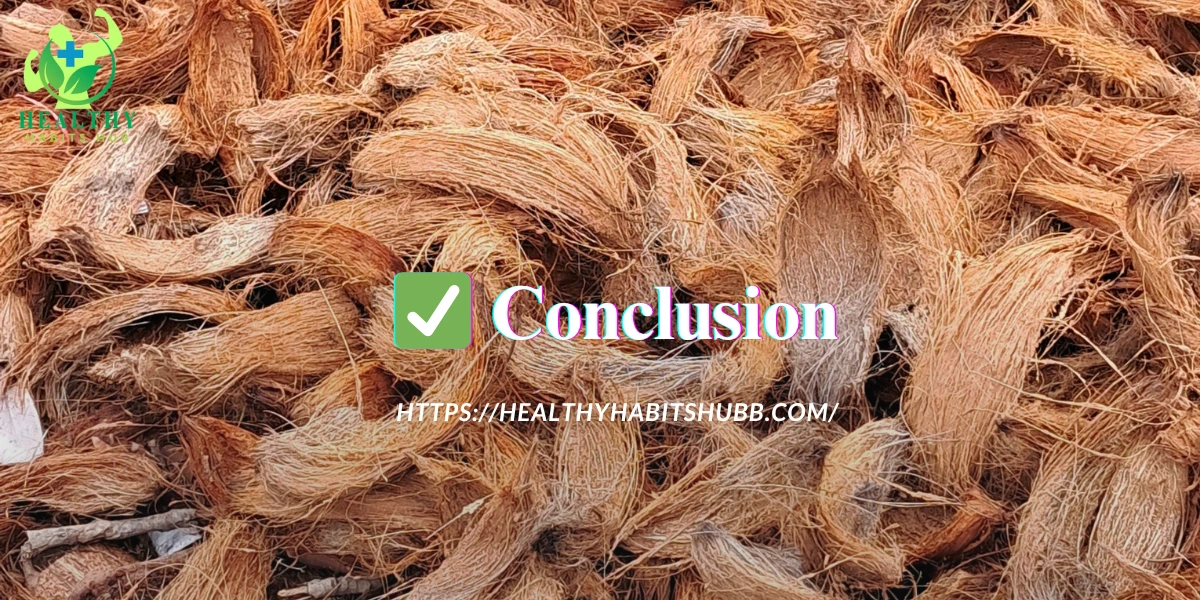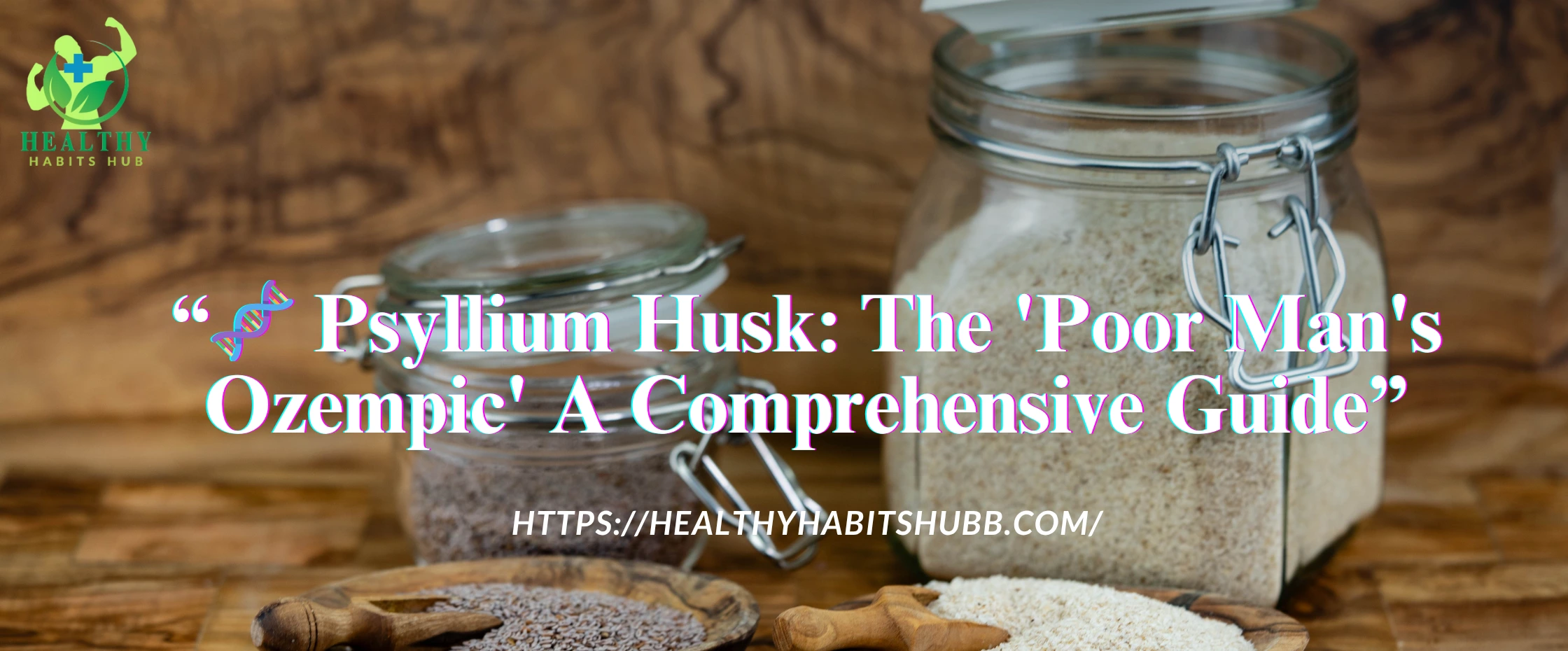Introduction
Table of Contents
TogglePsyllium husk, a natural soluble fiber derived from the Plantago ovata plant, is gaining attention as a cost-effective alternative to Ozempic for weight management and blood sugar control. Known for its digestive benefits, psyllium helps promote satiety, regulate bowel movements, and support heart health, offering a natural solution for those seeking to manage their weight and blood glucose levels without the high cost of prescription medications.
Most people are familiar with Ozempic and other prescription medications for weight loss. What is less known is that these drugs have a cheaper alternative, psyllium husk, which has recently been making waves for its weight management properties.
🌿 What Is Psyllium Husk?
Most people have never heard about psyllium husk as it is derived from the seeds of Plantago ovata which is mostly grown in India. When these seeds are processed into husk form, a soluble fiber is produced that, if mixed with water forms a gel-like substance. This gel not only aids digestion but also helps in making a person feel full. In the past, psyllium was used to manage constipation and as a general aid in maintaining good digestive well-being.
💊 Comparing Psyllium Husk and Ozempic

While both psyllium husk and Ozempic (semaglutide) are associated with weight management, they operate differently:
Ozempic:
A GLP-1 receptor agonist that mimics a hormone in the body to regulate blood sugar and suppress appetite.
Ozempic is a brand name for semaglutide, which is a marketed drug for treating type 2 diabetes. It has recently garnered interest as an aid for weight reduction. Its mechanisms of action is through mimicking GLP-1 (glucagon like peptide-1), a hormone that is involved in glucose, insulin, and appetite control.
💡 How Does Ozempic Work?
Ozempic works by several mechanisms to assist with blood glucose control and weight reduction.
- Appetite Suppression:
GLP-1 Receptor Agonist: Ozempic acts like GLP-1, a hormone from the intestine, by mimicking its action. It regulates insulin and has a strong influence on appetite control. As Ozempic activates GLP-1 receptors, it leads to heightened feelings of satiety and reduced food intake, thereby aiding weight reduction.
Slows Gastric Emptying: It slows down the emptying of the stomach which contributes to prolongation of satiety.
- Blood Sugar Regulation:
Insulin sensitivity is the ability of cells to respond to insulin. Ozempic improves insulin sensitivity which helps the body in its insulin utilization, this is particularly important for postprandial blood glucose control.It does so through decreasing the amount of sugar release from the liver as well as increasing the insulin production when blood sugar levels are high.
- Reduced Glucagon Levels:
Glucagon is classified as a hormone that promotes the release of stored sugar from the liver into the blood. Ozempic reduces the production of glucagon, which aids in achieving stable blood sugar levels.
- Psyllium Husk:
Bulk forming fiber supplements are fibers that absorb water and then swell within the stomach. This leads to a feeling of fullness and can reduce the amount of calories consumed.Psyllium husk is the outer coating of the seeds from the Plantago ovata plant, which is primarily cultivated in India. As a natural source of soluble fiber, it provided people with a variety of health-related benefits for centuries. It is especially helpful in managing cholesterol levels, maintaining digestive health, and assisting with weight control because it absorbs water and forms a gel-like substance.
💡 How Does Psyllium Husk Work?

As noted previously, psyllium husk has a unique ability to absorb water and expand in the stomach. This function helps to achieve:
- Enhance Satiety (Feeling Full):
The gel formed by psyllium husk significantly enhances the feeling of fullness in a person, thereby curbing the overall food consumption. This explains why psyllium husk is a common dietary fibre in weight loss regimes. It may control appetite and reduce unwanted nibbling by helping people feel fuller for a long time.
- Support Digestive Health:
Psyllium husk also qualifies as a bulk-forming laxative which helps with the regulation of bowel movements as well as the prevention of constipation by release of bulk in the stool. It can avoid constipation by absorbing water in the intestines, resulting in drier softer stool which is easier to pass.Psyllium husk works to enhance overall gut health by promoting regularity and smooth digestion.
- Reducing Cholesterol:
Psyllium husk has been shown to reduce LDL cholesterol (the bad type of cholesterol). The soluble fiber present in psyllium cholesterol binds to to and helps eliminate it from the body. This helps the heart and reduces the risk of getting cardiovascular diseases.
- Blood Sugar Levels Maintenance:
Blood sugar levels can be controlled using psyllium husk as well. It slows the digestion process which greatly reduces the chances of blood sugar spikes after consumption. This is very useful for people with type two diabetes or people who are likely to get the disease.Notably, although both could aid in weight control, psyllium husk does not mimic the hormones triggered by Ozempic. The weight reduction associated with psyllium husk use is modest and primarily from appetite suppression.
🧪 Scientific Insights

Research supports the following benefits of psyllium husk:
Enhanced Satiety: Psyllium’s viscosity enhances satiety, leading to reduced energy intake.
Supports Digestive Health:
The fiber in psyllium may promote regular bowel movements and counteract constipation.
Like other natural fiber supplements, psyllium husk is known to support digestive health. In particular, the soluble fiber in psyllium helps maintain one’s regular bowel movements, relieve constipation, and support the functionality of the whole digestive system. Here’s the reason why it is so effective:
🧬 The Science Behind Psyllium Husk’s Benefits To Digestion
Psyllium husk is predominantly comprised of soluble fiber, which is the type of fiber that can be digested. Upon digestion, it will create a gel-like substance that aids in softening waste products. For that primary reason, it is very important in use for moderation of bowel movements and overall health of the gut. Here’s why it is beneficial psyllium husk is beneficial in improving the digestive system:
Enhancing Bowel Regularity:
One prominent benefit of using psyllium husk is to help ease constipation as well as promote moderate bowel movement. Soluble fiber helps retain water within the colon which aids in stool softening as well as increases the volume of it. This increase in volume softens the stool which aids in easily passing the stool through the intestines.
It has been shown that psyllium husk helps with bulking up stool by absorbing excess water, which brings ease to those with irregular and difficult bowel movements. Furthermore, it improves the consistency of stool which reduces discomfort while easing getting rid of stool.
Managing Constipation:
When the colon absorbs too much water from stool, it hardens and becomes difficult to pass. Psyllium husk works for constipation treatment and prevention by softening the stool and promoting easier passage through smoother bowel movements.
Clinical evidence indicates that psyllium increases stool frequency and decreases the transit time of stool within the intestines. With consistent use, psyllium husk has proven to provide relief from the frequency and discomfort related to constipation.
Encouraging Beneficial Bacteria in the Gut:
Psyllium husk has prebiotic properties which makes it a beneficial substrate for the good microbiota. These beneficial bacteria contribute to a healthy digestive system by fermenting fibers, producing short chain fatty acids (SCFAs) that are anti-inflammatory and nourish colon cells.
Psyllium husk aids in restoring the balance of bacteria in the digestive system through its prebiotic properties, thereby, fostering a wholesome gut. A balanced microbiome enhances digestion, boosts immunity, and reduces inflammation in the gut.
Alleviating Diarrhea:
Psyllium husk is well known for its use in relieving constipation, but it can also be useful in managing diarrhea. Psyllium helps to alleviate diarrhea by absorbing excess water from the intestines, which both thickens the watery stool and decreases the pace at which stool is pushed through the colon.
Essentially, psyllium husk strives to maintain balance by absorbing water when there is excess (in the case of loose stool) or adding water when there is a deficit (in the case of dry stool). This property makes psyllium a helpful agent for patients who alternate between constipation and diarrhea, facilitating a uniform stool consistency.
May Regulate Blood Sugar:
Some studies indicate psyllium could protect against blood glucose spikes, which is beneficial for people with type II diabetes.
Psyllium husk is a soluble fiber from the seeds of Plantago ovata and is well-known for its benefits to digestive health. More recently, it has been gaining attention for its aids in achieving glucose homeostasis. Its action in stabilizing blood sugar levels, particularly postprandially, is beneficial in individuals suffering from type 2 diabetes, prediabetes, or anyone wanting to keep their blood glucose levels within a normal range.
💡 How Psyllium Husk Works to Control Blood Sugar Levels

Psyllium husk acts on blood glucose levels primarily due to its soluble fiber content. Upon consumption, psyllium works by forming a gel in the stomach which absorbs water. This action reduces the rate of glucose ingress into the blood stream after a meal, thereby achieving a more steady state of blood sugar levels.
Here’s a step-by-step explanation that elaborates on the mechanisms how psyllium husk can aid in controlling blood sugar levels:
Reduces the rate of Carbohydrate Digestion and Absorption to the Body System
Ingestion of psyllium husk leads to mixing with water and forms a gel. This gel observed to slows the rate of the digestive process by slowing the rate of gastric emptying.
Psyllium slows the absorption of food and carbohydrates into the blood, preventing sharp increases in blood sugar levels after consuming carbohydrate-rich meals. It aids in managing post-meal hyperglycemia, which is a frequent concern among diabetics.
Improves Insulin Sensitivity
Insulin sensitivity relates to how well the cells of the body respond to insulin, which is a critical hormone that controls the blood sugar levels within the body. Poor insulin sensitivity is a hallmark of type 2 diabetes.
Certain studies indicate that psyllium husk could enhance insulin sensitivity. It seems that by reducing the rate of glucose absorption and providing a steady release of sugar into the bloodstream, psyllium aids the body in utilizing insulin more efficiently, which in turn lessens the quantity of insulin that needs to be used to sustain normal levels of blood sugar.
Helps Reduce Post-Prandial (After Meal) Blood Sugar Spikes
One of the most notable advantages of psyllium husk in terms of blood glucose regulation is its capacity to prevent significant post-prandial blood sugar spikes, particularly in diabetics, these spikes can be quite perilous and challenging to manage.
Psyllium husk’s soluble fiber creates a thick gel in the stomach, causing glucose absorption and stomach emptying to slow down. This results in a slower rise of blood sugar levels post meal and minimizes the risk of sharp spikes.
Lowers Cholesterol, Which Can Improve Control of Blood Sugar
Cholesterol is linked to heart health, but it also has an impact on the metabolism and insulin sensitivity. High levels of cholesterol can worsen insulin resistance which, in turn, raises blood glucose levels.
Research shows that psyllium husk helps to lower LDL (bad) cholesterol. This means that psyllium indirectly aids in controlling blood sugar through better cholesterol levels. Improved lipid profiles enable the body to manage glucose more effectively while reducing the risk of diabetes-related complications.
Supports Losing Weight, Which Further Supports Better Management of Blood Sugar Levels
Blood sugar management in individuals with type 2 diabetes is a critical factor and weight loss is a significant part of it. Weight loss allows greater responsiveness to insulin and improves blood sugar control.
Psyllium husk aids in weight loss by enhancing the feeling of satiety, which leads to lower caloric consumption. In addition, psyllium improves blood sugar control and insulin sensitivity owing to weight loss.
It is vital to note that psyllium husk should be regarded as a secondary aid in the effort to lose weight. Its beneficial effects arise from its use alongside a healthy diet and consistent exercise regimen.
⚠️ Considerations and Side Effects

While generally safe, some users may experience:
- Gastrointestinal Issues: Bloating, gas, and abdominal discomfort may arise, particularly when water intake is less than optimal.
- Allergic Reactions: Though infrequent, hypersensitivity to psyllium resulting in rash or difficulty breathing has been documented.
- Medication Interactions: As with many supplements, it’s best to consult a healthcare professional before starting to ensure that serving size aligns with other dietary medications due to psyllium’s potential interference with their absorption.
To avoid potential issues for those taking psyllium husk, drinking lots of water is beneficial to ensure hydration.
💰 Cost Comparison
Psyllium husk is unmatched in affordability. Comparatively to supplements, Ozempic which can cost several hundred dollars per month, pysllium husk supplements are available at a fraction of the cost.
✅ Conclusion

Psyllium husk emerges as a natural, inexpensive, and effective solution for individuals seeking to aid their weight management. Even though it does not mimic the hormonal actions of drugs like Ozempic, its sharp appetite control and support for digestive functions would be useful when synergistically combined with a comprehensive weight management plan. Always seek professional advice prior to starting any new supplement routine, particularly those with preexisting health issues or on other forms of medication.
📚 Related Articles
- Psyllium husk: A natural remedy for gut support, blood sugar control, and heart health?[1]
- Natural Alternatives to Ozempic for Effective Weight Loss[2]
- Top Natural Alternatives to Ozempic[3]
- Psyllium husk and weight loss – American Pharmacists Association[4]
- https://healthyhabitshubb.com/weight-loss-gain/

